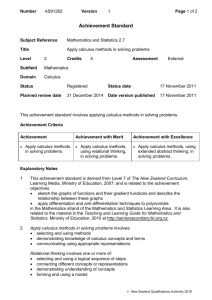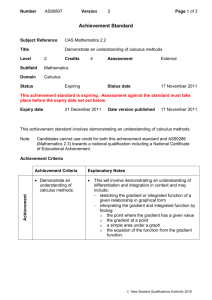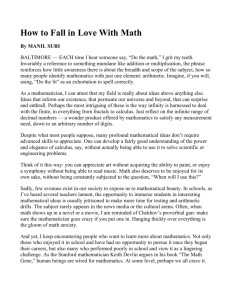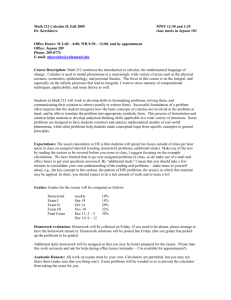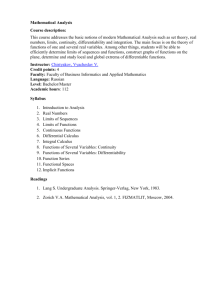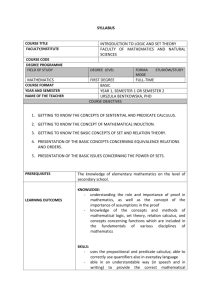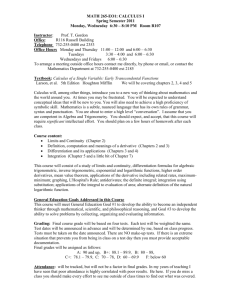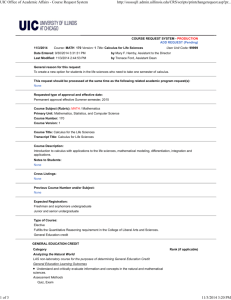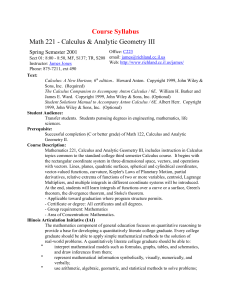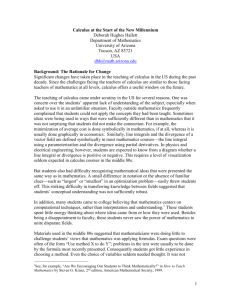91262 Apply calculus methods in solving problems
advertisement
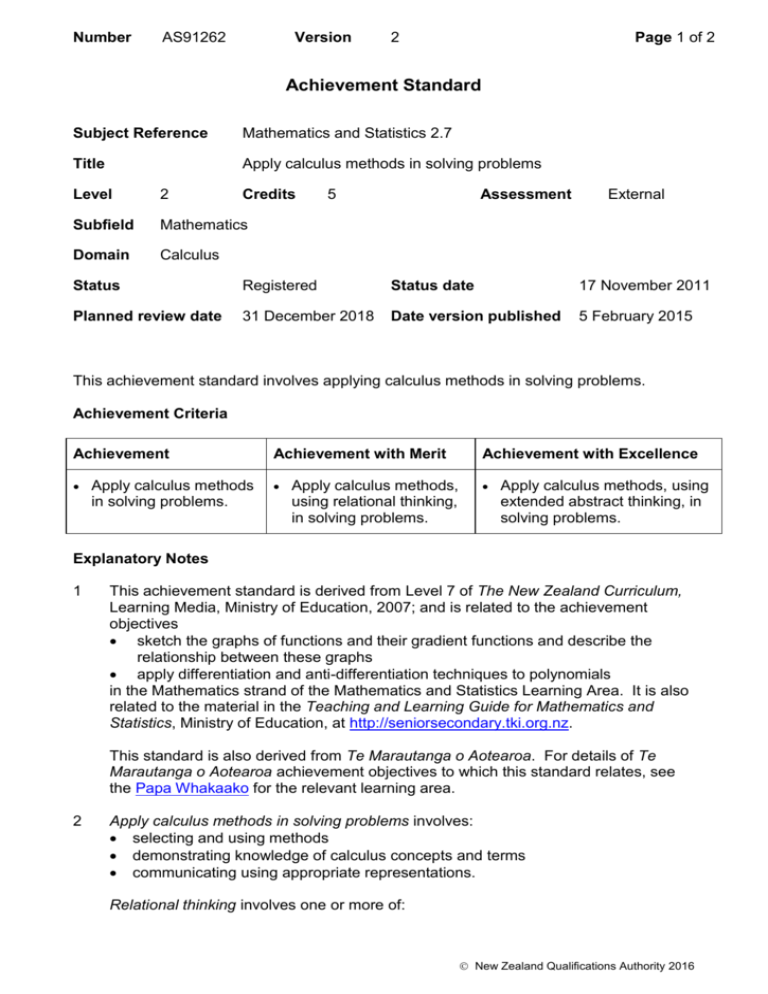
Number AS91262 Version 2 Page 1 of 2 Achievement Standard Subject Reference Mathematics and Statistics 2.7 Title Apply calculus methods in solving problems Level 2 Credits Subfield Mathematics Domain Calculus 5 Assessment External Status Registered Status date 17 November 2011 Planned review date 31 December 2018 Date version published 5 February 2015 This achievement standard involves applying calculus methods in solving problems. Achievement Criteria Achievement Achievement with Merit Achievement with Excellence Apply calculus methods in solving problems. Apply calculus methods, using relational thinking, in solving problems. Apply calculus methods, using extended abstract thinking, in solving problems. Explanatory Notes 1 This achievement standard is derived from Level 7 of The New Zealand Curriculum, Learning Media, Ministry of Education, 2007; and is related to the achievement objectives sketch the graphs of functions and their gradient functions and describe the relationship between these graphs apply differentiation and anti-differentiation techniques to polynomials in the Mathematics strand of the Mathematics and Statistics Learning Area. It is also related to the material in the Teaching and Learning Guide for Mathematics and Statistics, Ministry of Education, at http://seniorsecondary.tki.org.nz. This standard is also derived from Te Marautanga o Aotearoa. For details of Te Marautanga o Aotearoa achievement objectives to which this standard relates, see the Papa Whakaako for the relevant learning area. 2 Apply calculus methods in solving problems involves: selecting and using methods demonstrating knowledge of calculus concepts and terms communicating using appropriate representations. Relational thinking involves one or more of: New Zealand Qualifications Authority 2016 Number AS91262 Version 2 Page 2 of 2 selecting and using a logical sequence of steps connecting different concepts or representations demonstrating understanding of concepts forming and using a model; and also relating findings to a context, or communicating thinking using appropriate mathematical statements. Extended abstract thinking involves one or more of: devising a strategy to investigate a situation demonstrating understanding of abstract concepts developing a chain of logical reasoning, or proof forming a generalisation; and also using correct mathematical statements, or communicating mathematical insight. 3 Problems are situations which provide opportunities to apply knowledge or understanding of mathematical concepts and methods. Situations will be set in real-life or mathematical contexts. 4 Methods include a selection from those related to: derivatives and anti-derivatives of polynomials given in expanded form gradient functions gradient at a point equation of a tangent turning points where f (x) 0 and their nature function from a derived function rate of change problems (such as kinematics). 5 Assessment Specifications for this achievement standard can be accessed through the Mathematics and Statistics Resources page found at http://www.nzqa.govt.nz/qualifications-standards/qualifications/ncea/ncea-subjectresources/. Replacement Information This achievement standard replaced AS90286, AS90807, unit standard 5244, unit standard 5260, and unit standard 5261. Quality Assurance 1 Providers and Industry Training Organisations must have been granted consent to assess by NZQA before they can register credits from assessment against achievement standards. 2 Organisations with consent to assess and Industry Training Organisations assessing against achievement standards must engage with the moderation system that applies to those achievement standards. Consent and Moderation Requirements (CMR) reference 0233 New Zealand Qualifications Authority 2016

